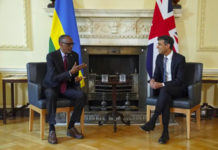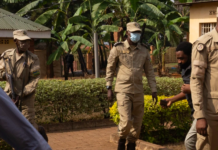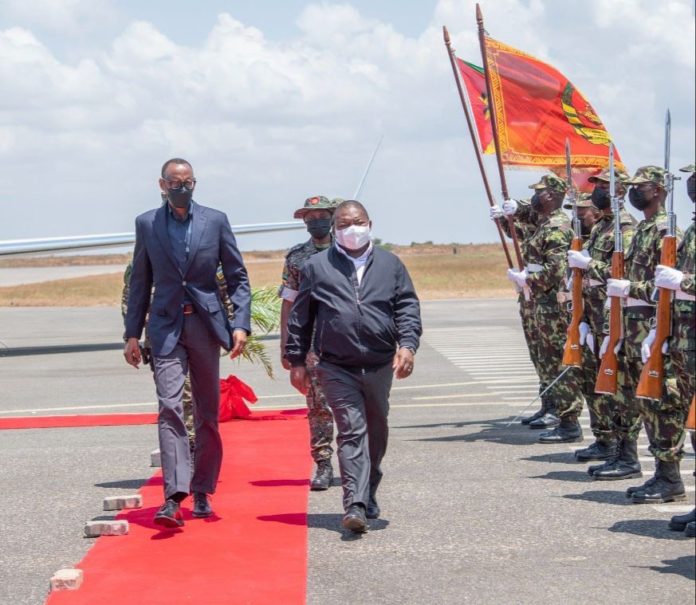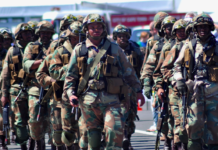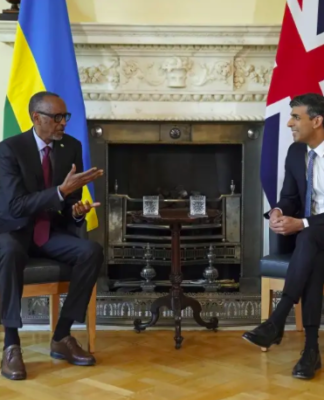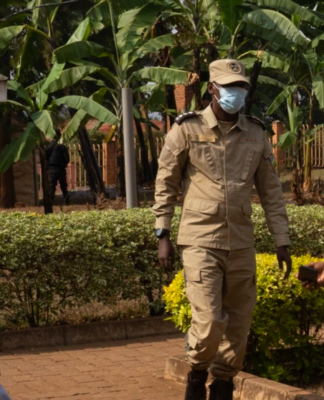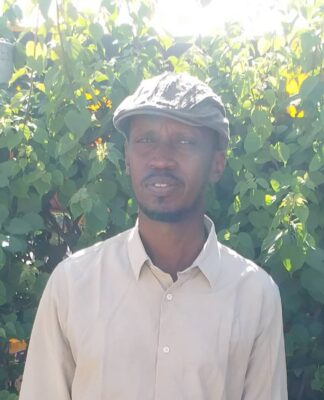By Erasme Rugemintwaza
From 24 to 25 September, 2021, Rwanda’s President Paul Kagame paid a two-day working visit in Mozambique, where he has sent a contingent of 1000 Special Forces to help Mozambican soldiers to fight against a jihadist pseudo-insurgency. In his addressee to both Rwandan and Mozambican soldiers, Paul Kagame said that his country will help secure and rebuild Cabo Delgado province destroyed by years-long armed campaign. What did Kagame really do in Mozambique during this visit? Why is Rwandan government involved in Mozambique?
In the beginning of July 2021, Rwanda has deployed in Mozambique a contingent of 1000 soldiers and policemen from special units, respectively the Rwanda Defence Force (RDF) and the Rwanda National Police (RNP). This intervention has been very controversial by the international community and especially the SADC, because the plausible diplomatic or geo-strategic motives seemed blurred. Many see in this mission, the French hand, for its economic interests to protect a TotalEnergies gas site of more than 20 billion euros. Others find it as a mission with a hidden agenda for Kigali to destabilize the Hutu refugee community in Mozambique, always decried by Kigali as a threat to its regime.
Despite this atmosphere, Rwanda was the first of several Africana countries to provide reinforcement to Mozambique’s army, overwhelmed by the worsening conflict apparently considered as jihadist pseudo-insurgency, in its gas-rich nest Cabo Delgado province.
President Paul Kagame landed in the provincial capital Pemba on Friday morning where he received by his Mozambican counterpart Filipe Nyusi. On the activities planned during this two-day visit, there is an addressee to the armed forces and police deployed in Cabo Delgado to liberate the region and restore peace. During these three months a saga reported the bravery of Rwandan troops, to the extend that todays, many are wondering how an insurrection that was able to keep the Mozambican regular army in disarray, little trained as it may be, for 4 years, vanished into the nature with the mere announcement of the Rwandan presence.
But alongside Rwanda, members of the 16-nation Southern African Development Community (SADC) bloc have also dispatched troops, including almost 1500 pledged by the direct Mozambique’s neighbour, and most African military power, South Africa. The European Union(EU) has meanwhile set up a military mission for Mozambique to help train its army which is reportedly seen as weak trained and ill-equipped.
And together, Rwandan and Mozambican troops struck a major victory in August when they drove out insurgents out of their de facto headquarters in the port of city in Macimboa da Praia.This Victory has been relayed all over the world, to honour Rwanda forces and treat them as “heroes”. It was opportune for two presidents to visit theirs armies applaud them for their bravery.
In Kiswahili, which is an “official” language for the Rwandan security services, Kagame said: “I want to start by thanking my brother and friend, President Nyusi and his delegation for inviting us to this city and thank you Rwandan and Mozambican soldiers and Police for all the hard work you have done to liberate Cabo Delgado” “the work hasn’t been easy, You have done great work alongside Mozambican troops. You sacrificed and endured days and nights in scorching sun, heavy rain and under fire. The work done so far cannot stop here. We now have another mission which is to continue protecting this country so than it can be rebuilt”
And to conclude his speech Kagame warned the insurgents: “The rebels better know that we won’t sit back and let them return and threaten the lives of the people of Cabo Delgado. Thank you president Nyusi for inviting us and making the time to speak to our soldiers so that they can leave this place safer than they can found it”
For his part President Filipe Nyusi to Paul Kagame said: “Thank you for the cooperation between our soldiers. The Rwandan soldiers have shown immense respect to our citizens. They are loved and respected. Our soldiers are forever indebted to you and we look forward to continuing rebuilding the lives of our citizens for the better”. Filipe Nyusi called Rwandan troops “real heroes”
Encouraged by officials, people return home, and about 25,000 had been brought home. But United Nations officials are not sure of the security, and a document compiled in September for UN agencies and other aid organizations said it was not clear whether the fighters’ capabilities had been much reduced “Fighting continues in certain locations and civilian authorities have not been re-established” The document continues: “Civilians in this area really fear the fighters from this armed group. They are notorious for beheadings, for abducting people and all of the villages are still completely deserted. A lot of buildings have been torched, goods from the sops have been looted, cars have been set on fire as well”.
Ronald Rwivanga, the sportsperson of the Rwanda Defence Force said the Rwandans had been driving civilians back into the area they control near a $20 billion liquefied natural gas project by oil major TotalEnergies, which was forced to halt by the Palma attack
Furthermore, security analysts say that Mozambican military deficiencies that allowed the armed campaign to take hold in the north -including soldiers that are ill-equipped, undisciplined and poorly paid- will not be easily reversed, even with other forces there. They say, security is uncertain outside of small, heavily guarded areas, and violence has continued. Local people and security forces have recently reported a string of attacks in Quissanga district, south of Macimboa da Praia, where fighters are believed to have fallen back after the town has retaken. The latest occurred on 22nd September evening in the village of Lindi. Two people were killed and two others injured and fighters have captured several women and girls. They also ambushed two buses transporting soldiers later 23rd September causing at least one death. In total, about 10 people have been killed across several villages in Quissanga over the past week. And some of the victims are reportedly beheaded.
When he was concluding his visit, Paul Kagame and Filipe Nyusi went to Pemba Municipality Stadium to celebrate the Armed Forces Day, and before addressing members of the press, the two Presidents enjoy watching naval show at Naval Base in Pemba.
Addressing the members of the press, Paul Kagame said “Sustainability lies in how we have worked together to fight the terrorism at the same time, built cooperation. Mozambique has placed a system to train their forces to take over whatever issue they may face in the future”. On the funding deployed troops Kagame said: “What is costly is allowing a situation to continue the way it was without doing anything about it. That is more costly than the operation itself. It costs more lives lost and a future lost in terms of development”.
And to emphasize his philosophy preaching “African solutions to African problems”, Paul Kagame said “Africans are capable, and can find solutions to even our most difficult problems. Nothing should stop us from ensuring the stability, progress, and well-being of the people of Africa. This is why Rwanda did not hesitate, when we were asked to join our armed forces together with Mozambican forces, to bring security back to this region. Together, our joint forces have succeeded in pushing back the insurgents”
Even though this military deployment has raised questions, the cooperation between Rwanda and Mozambique dates from 2018 when two countries signed a memorandum of understanding, with 5 agreements to help business flow and exchange of knowledge, during the Nyusi visit in Rwanda, in July 2018. The only bilateral agreement signed in this visit is about trade and investment cooperation. A visit to demonstrate, once again, Kagame’s military power!
Why is Rwandan government involved in Mozambique?
The insurrection in Cabo Delgado poses a very significant threat both at local and international levels. Locally, the jihadists in the four-year low-intensity war has killed more than 3,300 civilians, displaced 800,000 and caused wide spread food insecurity. Meanwhile, the energy majors ExxonMobil and TotaEnergies have suspended their liquid natural gas project in Cabo Delgado. ExxonMobil is investing $30 billions and TotalEnergies $20 billion. The insurgents have cited the perception that local people won’t benefit from the governments deals with the multinational companies as one catalyst for their attack. Thus, this insurrection represents a real threat and it urges to fight it and secure Cabo Delgado. And as the Mozambican forces have been routed and defeated by the insurgency, urgent and foreign intervention was required. The Rwandan Government has been the first to rescue Mozambique. Why is the Rwandan government getting involved? There is vociferous debate about this.
The Rwandan government frames this as a ‘responsibility to protect’ mission. This, it argues, has been inspired by the international community’s failure to protect civilians in Rwanda during the 1994 genocide against the Tutsi.
The Rwandan intervention in Mozambique came shortly after French President Emmanuel Macron’s visit to Kigali in May this year. Some commentators have suggested that Rwanda, funded by France, has intervened to shore up France’s interests, principally the gas reserves of French-owned TotalEnergies. The Rwandan government has chafed against the claim that it is simply doing France’s neo-colonial bidding. It has stressed the humanitarian basis of its intervention.
There is scant evidence of direct French backing for Rwanda’s military campaign. Nevertheless, France held a series of high-level talks with Rwanda and South Africa about the Cabo Delgado conflict in the months preceding their interventions in Mozambique. This suggests close coordination between Paris and these actors, reflecting the enormous French interests at stake. In May this year, Macron discussed military solutions to the crisis with a number of African heads of state at a summit in Paris. They included Mozambican President Filipe Nyusi, South African President Cyril Ramaphosa and Rwandan President Paul Kagame. This was succeeded by similar talks with Kagame and Ramaphosa in Kigali and Pretoria several weeks later. When he was in visit in Rwanda, 10 days after Kagame was received in Paris, in the end of May this year, President Emmanuel Macron announced that France and Rwanda are working hand in hand on three cases, namely the Democratic Republic of Congo, the Central African Republic and Mozambique.
Crucial to Rwanda’s involvement in Cabo Delgdao are growing ties between Rwanda and Mozambique after the two countries signed a memorandum of understanding in 2018, with 5 agreements. Earlier this year Nyusi made a lightning-stop visit to Kigali to ask for Rwanda’s military assistance in Cabo Delgado. Nyusi had previously stated his preference for bilateral rather than multilateral military intervention. He is perhaps concerned about ceding too much control to a SADC mission led by regional powerhouse South Africa. He also noted Rwanda’s track record of conducting highly disciplined and effective peacekeeping missions. These have included Rwandan battalions operating in the Central African Republic outside the broader UN peacekeeping mission, similar to Rwanda’s current support for Mozambican forces outside of SADC.
Alongside its humanitarian objectives, the Rwandan government stands to benefit in security and diplomatic terms from its involvement in Cabo Delgado. The intervention fits a pattern of Rwanda’s ‘responsibility to protect’ role in peacekeeping missions in Darfur, Mali, CAR and Haiti. These have bolstered its international image and afforded it considerable international leverage. For example, in 2010 when foreign donors considered prosecutions and suspending aid to Rwanda because of its alleged crimes in eastern Congo, Kigali threatened to withdraw its peacekeepers from Darfur.
The Cabo Delgado campaign is also consistent with Rwanda’s recent talk of tackling Islamist threats at home and in the wider region. In regional geopolitical terms, Rwanda will have delighted in reports that its troops in northern Mozambique have proven more effective than those of SADC, with which it has often had a testy relationship.
Finally, Rwanda’s intervention bolsters its bilateral relations with Mozambique and France. A key catalyst for Rwanda’s diplomatic push with Mozambique in recent years has been the concern that Maputo had become a launching pad for exiled Rwandan dissidents. This has included members of the opposition Rwanda National Congress. Closer security ties have included Rwanda’s request that Mozambique rein in opposition members on its soil.
Kagame has for years lambasted France for failing to apologize for its complicity in the 1994 genocide. It therefore took some genocide survivors by surprise when he warmly welcomed Macron’s remarks on the issue. They had misgivings about whether Macron had fully acknowledged and apologized for France’s role in the genocide. Kagame’s warm comments preceded the announcement of a new €500 million French development package to Rwanda.
Kagame, a “Deus ex machine” for Mozambique!
The Rwandan forces have so far proven effective in tackling the jihadist insurgents. This has led the Mozambican government to claim that Rwanda’s entrance has fundamentally altered the direction of the conflict and improved the security situation for civilians and foreign companies.
The concurrent operations by Rwandan and SADC forces, however, could pose problems in the coming months. Various SADC leaders – as well as Mozambique’s largest opposition party Renamo – have criticized the arrival of Rwandan troops. They argue that this should have been an exclusively SADC effort. These issues were clearly on the mind of Rwandan Foreign Minister Vincent Biruta who travelled to Pretoria in early June this year to discuss Rwanda-South Africa cooperation in Mozambique. This came shortly after Rwandan military chiefs conducted their first reconnaissance trip to Cabo Delgado.
But military force can achieve only so much. This has been made clear in comparable cases of Islamist violence in the Horn of Africa, Nigeria and the Sahel. Systemic political and socio-economic interventions are necessary to address years of Frelimo neglect in northern Mozambique. These have produced the deprivation and marginalization that underpin the insurgency. Mozambicans themselves are clearly the key actors in this situation. Nevertheless, Rwanda and SADC should use their diplomatic leverage to encourage Nyusi to address the structural causes – and not only the violent manifestations – of the conflict. This includes ensuring that the immense natural gas wealth that will flow once the conflict abates benefits not only Nyusi’s government and multinational corporations but, most importantly, everyday Mozambicans.
Meanwhile, Kagame said that Rwandan troops’ work not over.

